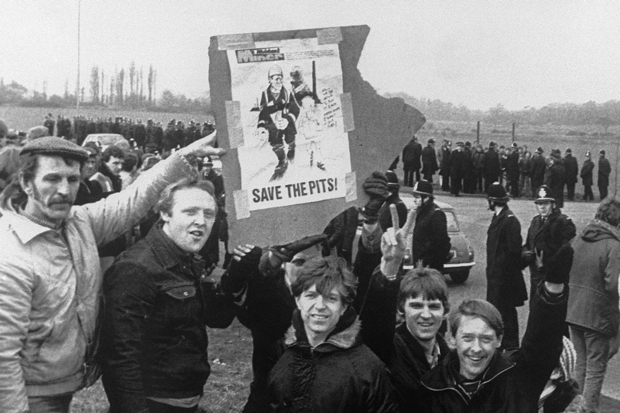It’s 50 years since the first local radio stations were launched by the BBC in yet another instance of the corporation working hard to stay ahead of the game, on this occasion responding to the challenge of the pirate stations, whose audiences were local and known to be very loyal. Radio Leicester was the first to go on air on8 November 1967, launched by a very plummy-voiced postmaster-general as ‘the first hometown radio station in Britain’. (The BBC executive behind the idea, Frank Gillard, had spent time in America and been impressed by local radio there, wishing to replicate its homespun feel.) Others followed quickly, dependent on whether the local council was happy to provide part-funding (they are now solely funded by the BBC). Known for their cheesy jingles (Radio Merseyside boasted that their call-sign was composed by Gerry Marsden, of the Pacemakers), the BBC’s local stations were often treated like a poor relation of grand old 1, 2, 3 and 4.
Underfunded, understaffed, relegated to the back pages of Radio Times, they were designed for listeners like ‘Dave and Sue’ (the fictional target audience created by the Beeb’s marketing department), who were in their fifties, not interested in politics or piano concertos, shopped at Asda, wore ‘casual clothes’, and wanted to be cheered up and made to laugh by what they listened to. But very soon the network of stations expanded to 39, and they established themselves as vital agents of local life in times of crisis, responsive in a way the national stations never could be, their reporters on the spot, with crucial local knowledge and insight.
In recent years local radio has been under threat, seen as taking too much away from the BBC’s centralising budget. But at last a director-general has come along who understands radio and why it’s thriving in this visual age (its immediacy, its intimacy, its connectivity). Last week, Tony Hall announced that instead of cutting the budget for local radio by £10 million, as had been threatened, its funding will be maintained to ensure the survival of stations in places such as Bradford and Birmingham, Teesside and Lincolnshire. Hall not only preached survival. He wants ‘a renaissance’ of the BBC’s local network, believing it to be a vital defence against fake news and an opportunity to catch the attention of younger, more digitally aware listeners, who expect more immediate, more responsive, more direct communication.
There is something very different about the conversation local stations have with their audiences. As Vanessa Feltz of Radio London explained on the World At One last Wednesday, it is ‘very, very intimate. You can be talking about specific houses, specific window boxes’; it’s broadcasting in the raw. Jack Thompson, one of the first presenters on Radio Sheffield, recalled how instead of phoning in, callers would turn up at the station and be put behind the mike, talking directly to other listeners. Local stations can react more quickly, the Radio Manchester presenter Allan Beswick staying on air until six in the morning after the Manchester Arena attack earlier this year.
That continuity and flexibility creates a bond with the listener that could be said to be ‘the culture of encounter’ interrogated by Douglas Alexander, the former Labour MP and cabinet minister, in his programme for Radio 4 on Tuesday morning. He wonders why so many of us now have the sense that we’re living among strangers, incredulous that anyone can have voted to leave the EU, or on the other hand to remain. We only mix with people like us, rarely venturing beyond what we know, like the council leader who only after the Grenfell estate fire realised they had never been inside a council-owned tower block. In A Culture of Encounter we heard about the plight of towns like Oxford, which in the 1970s was a place of mixed housing, varied work and a diverse population, but where house prices have risen so high only certain people can now afford to live there. The economy, technology and now politics are pulling us further and further apart, Alexander wondering why, when he spent a week in an apartment in New York owned by someone he had never met, he realised he had more in common with them than with his neighbours at home in Scotland.
Alexander was not just pointing out how British society has changed; he wants to find ways of bridging the divisions. We’re hardwired to spend time with people like us, conclude the psychologists. What, then, does it take to overcome this tendency? Which brings us to the Pope, whose experience of working as a priest in his native Argentina taught him that the centre of gravity does not lie in the posh offices of the archbishop but in the slums on the periphery. To counteract this, says Pope Francis, we have to move out of our comfort zones, to develop ‘a culture of encounter’, to live in someone else’s shoes for a time. Shared activities bridge the difference, like the project in Peckham that brings young professionals together with older people, the young teaching techie skills, the older people telling stories, giving advice, Just like local radio.






Comments